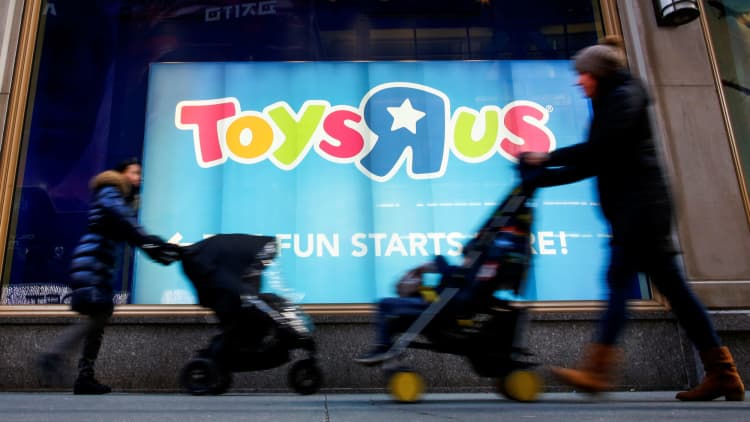Another retailer is tying itself up with Amazon. This time, it's Party City.
In tandem with reporting second-quarter earnings, the retailer on Thursday said it would be rolling out a pilot program on Amazon ahead of the Halloween season this year. Party City will offer an assortment of items on Amazon to start, but with a big focus on Halloween costumes, the company said.
Just within the past year, a number of brands have announced similar initiatives, partnering with the e-commerce giant that is taking a larger and larger share of retail sales online. That list of companies now includes Sears Holdings, Nike, Chico's, Calvin Klein and Carter's, to name a few.
Halloween meanwhile is Party City's biggest selling season, and consumer spending across the U.S. on Halloween-related merchandise continues to climb. Spending on items like costumes, candy and pumpkins reached a record $9.1 billion in 2017, according to an annual survey by the National Retail Federation. That was up more than 8 percent from a previous record of $8.4 billion in 2016.
Party City CEO James Harrison said the company's goal with the Amazon pilot is to reach customers who are increasingly gravitating toward shopping online, including millennials.
"[T]he program also creates an additional channel of distribution that allows us to leverage our dynamic manufacturing and distribution capabilities," he said in a statement. Party City will continue to run its own website.
The party goods retailer said it expects the pilot program will eventually expand to other product categories for Christmas and the New Year, "with further expansion possible in 2019."
"Amazon is like the most trafficked mall," Party City CFO Dan Sullivan told CNBC. "Our intent is to put up another storefront" that will complement Party City's existing locations and online business, he explained, not to cannibalize anything.
In the wake of Toys R Us' demise, Party City is also making a bigger push into the toy category and plans to open 50 Toy City pop-up stores ahead of the holidays. The company didn't say Thursday if it would test selling toys on Amazon.
Unlike its costumes business — which is either manufactured or sourced by Party City 95 percent of the time — Party City will still rely on outside vendors for their toy merchandise. The company said on a call with analysts and investors Thursday that it wasn't considering beginning to manufacture its own toys in the near future. "We don't aim to be Walmart or Target," Sullivan later told CNBC.
For the second quarter of fiscal 2018 ended June 30, Party City's sales climbed 3 percent to $561 million, falling slightly short of Wall Street's expectations for $563.9 million, according to a survey of analysts by Thomson Reuters.
Net income rose to $28.5 million, or 29 cents a share, compared with $25 million, or 21 cents per share, a year ago. Excluding one-time items, Party City earned 40 cents a share, a penny above analysts' estimates and compared with earnings per share of 28 cents for the same period last year.
The company didn't change its full-year outlook and still expects to bring in as much as $2.49 billion in sales and earn between $1.76 and $1.87 a share, on an adjusted basis. The Street had forecast Party City's sales to be $2.48 billion for fiscal 2018, with net income of $1.84 per share.
According to CFO Sullivan, it's still "premature" to think about the Amazon pilot and Toy City pop-up stores contributing to Party City's earnings, hence why the company didn't hike its expectations. "We are set on learning and evaluating how the customer shops," he said. He also didn't rule out Party City opening a more permanent toy location in the future.
Party City shares rose nearly 5 percent in trading Thursday morning on the news. The stock has climbed nearly 13 percent so far this year, bringing Party City's market cap to $1.6 billion.
WATCH: The rise and fall of Toys R Us



